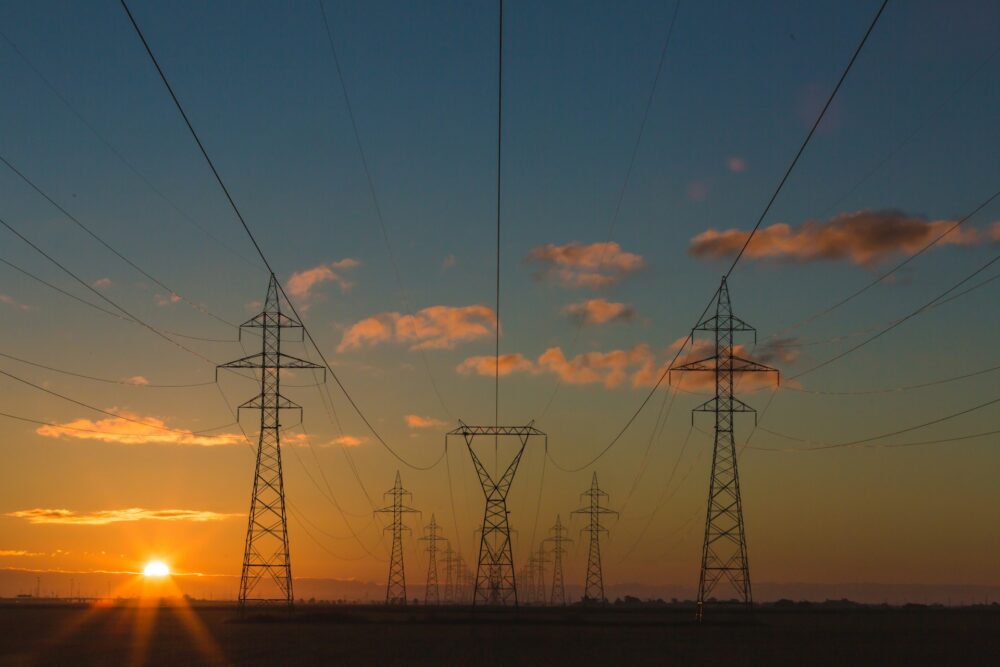Rhinobay Energy is committed to bridging the energy gap in Nigeria by implementing rural electrification projects that leverage renewable energy technologies. The company’s approach focuses on sustainability, affordability, and community involvement, ensuring that the solutions provided are not only effective but also tailored to the specific needs of each community.
Key Components of Rhinobay Energy’s Rural Electrification Projects
Rhinobay Energy’s rural electrification projects are built around several key components that address the unique challenges of providing electricity to remote areas:
1. Solar Power Solutions
Solar power is at the heart of Rhinobay Energy’s rural electrification strategy. Solar energy is abundant in Nigeria, making it an ideal source for powering rural communities. Rhinobay Energy installs solar panels that harness sunlight to generate electricity, providing a clean, renewable, and reliable source of power.
These solar systems are designed to meet the specific energy needs of rural households, schools, and businesses, ensuring that they have access to electricity throughout the day and night. The systems are also equipped with battery storage, allowing excess energy generated during the day to be stored and used during the evening or on cloudy days.
2. Mini-Grids and Micro-Grids
In areas where extending the national grid is not feasible, Rhinobay Energy implements mini-grid and micro-grid systems. These localized grids are powered by renewable energy sources such as solar or hydro and are capable of providing electricity to entire villages or clusters of households.
Mini-grids and micro-grids are a cost-effective solution for rural electrification, as they can be set up quickly and operate independently of the national grid. Rhinobay Energy’s mini-grid projects are designed to be scalable, allowing the system to grow as the community’s energy needs increase.
3. Hybrid Energy Systems
For communities with varying energy demands or where renewable energy alone may not be sufficient, Rhinobay Energy offers hybrid energy systems. These systems combine renewable energy sources, such as solar or wind, with conventional generators to provide a more reliable and consistent power supply.
Hybrid systems are particularly useful in areas where weather conditions may affect the availability of solar or wind energy. By integrating multiple energy sources, Rhinobay Energy ensures that rural communities have access to electricity at all times, regardless of environmental factors.
4. Community Engagement and Capacity Building
Rhinobay Energy understands that the success of rural electrification projects depends on community involvement. The company actively engages with local communities to ensure that they are part of the decision-making process and that the energy solutions provided meet their specific needs.
In addition to providing electricity, Rhinobay Energy also invests in capacity building, training community members on how to operate and maintain the energy systems. This approach not only ensures the long-term sustainability of the projects but also empowers communities to take ownership of their energy future.
Impact of Rhinobay Energy’s Rural Electrification Projects
Rhinobay Energy’s rural electrification projects have had a profound impact on the communities they serve, bringing about significant social, economic, and environmental benefits:
1. Improved Quality of Life
Access to electricity has transformed the daily lives of rural residents. With reliable power, households can light their homes, power appliances, and access information and communication technologies. This has improved living conditions, enhanced educational opportunities, and facilitated access to healthcare services.
Schools in electrified communities can now extend their hours, allowing students to study after dark, and healthcare facilities can offer better services, such as refrigeration for vaccines and lighting for nighttime care. These improvements have had a positive impact on the overall well-being of the community.
2. Economic Development
Electricity is a catalyst for economic development. With access to power, rural communities can establish small businesses, such as retail shops, food processing units, and workshops, that contribute to local economic growth. Farmers can also use electricity to power irrigation systems, processing equipment, and storage facilities, increasing agricultural productivity and income.
Rhinobay Energy’s projects have created job opportunities, both directly and indirectly, through the installation, operation, and maintenance of energy systems. This has helped to reduce poverty and improve the standard of living in rural areas.
3. Environmental Sustainability
By replacing traditional energy sources like kerosene lamps and diesel generators with clean, renewable energy, Rhinobay Energy’s rural electrification projects have contributed to reducing greenhouse gas emissions and environmental pollution. This supports Nigeria’s efforts to combat climate change and transition to a more sustainable energy future.
The use of solar power and other renewable energy sources also reduces the dependence on fossil fuels, contributing to energy security and the diversification of the energy mix in rural areas.
4. Social Empowerment
Rural electrification projects have empowered communities by giving them access to information, education, and economic opportunities. Women, in particular, have benefited from these projects, as access to electricity has enabled them to engage in income-generating activities, reduce the time spent on household chores, and improve their overall quality of life.
The involvement of communities in the planning and implementation of these projects has also fostered a sense of ownership and responsibility, ensuring the long-term success and sustainability of the electrification efforts.
The Future of Rural Electrification with Rhinobay Energy
Rhinobay Energy is committed to expanding its rural electrification projects to reach more communities across Nigeria and Africa. The company’s vision is to create a future where every household, school, and business has access to reliable and sustainable electricity, regardless of their location.
As Rhinobay Energy continues to innovate and implement new technologies, such as smart grids and advanced energy storage solutions, the company is poised to play a leading role in the rural electrification movement. By providing communities with the power they need to thrive, Rhinobay Energy is not only addressing the energy challenges of today but also laying the foundation for a brighter, more prosperous future for generations to come.
In conclusion, Rhinobay Energy’s rural electrification projects are a testament to the company’s commitment to empowering communities, driving economic development, and promoting environmental sustainability. As the company continues to expand its reach and impact, it is helping to transform the energy landscape in Nigeria and Africa, one community at a time.















Leave a Reply